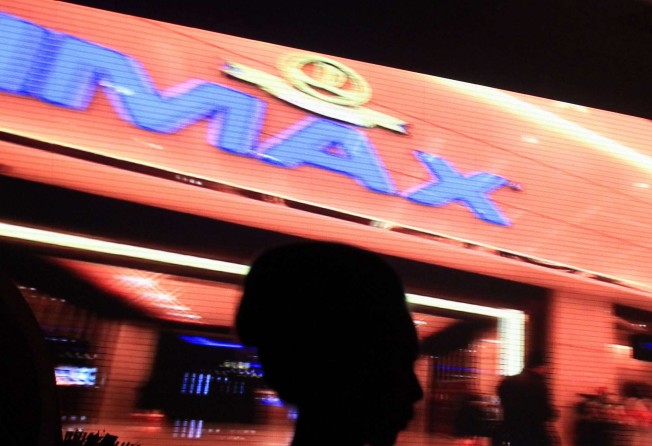
IMAX China profits tumble 13pc amid box-office slump
The company reported a full-year profit of US$36.09m from a loss of US$182m the previous year, while revenue grew 7.2pc to US$118.5m

IMAX China Holdings, the sole platform for the release of ultra-wide screen IMAX format movies in the country, recorded a full-year net profit of US$36.09 million in 2016, while its adjusted profit dropped 13.4 per cent, below market expectations.
On an adjusted basis, net profit slid to US$37.6 million in 2016 from US$43.35 million in the previous year, missing consensus analyst estimates of US$39.88 million yuan in a Reuters poll, as the stalled expansion of China’s box-office receipts cast a shadow over the audacious growth plan of the Shanghai-based cinematic technology provider.
Revenue last year grew 7.2 per cent to US$118.5 million from a year earlier.
IMAX China shares advanced 8.4 per cent to close at HK$36.0 on Friday, although the stock has still has lost more than 5.3 per cent since the start of this year.

The latest financial figures come as Chinese audiences have refrained from paying a premium to upgrade their movie experiences to what is perceived to be an immersive presentation.
In 2015, theatregoers flocked to take advantage of steep discounts rolled out by mainland mobile ticketing platforms, where a movie ticket can cost as low as 9.9 yuan(US$1.4), but such sales promotions came to a virtual end in 2016.
“As IMAX features normally charge a lot more, people will be less likely to go for it if tickets prices surpass certain levels,”said Angela Han, an analyst with China Merchant Securities.
Unlike well-paid white collar workers in China’s more cosmopolitan cities such as Beijing and Shanghai, young filmgoers seeking affordable, undemanding entertainment in less-prosperous third- or fourth-tier cities are still as easily swayed by cheap movie tickets as by special effects or a big name cast.
That has made pricing a critical matter for the well-being of the US$6.64 billion movie market, which was predicted by China’s richest man Wang Jianlin, who runs the world’s biggest theatrical exhibitor chain Cinema Line, to overtake North America in the coming two years.
We believe this decline was primarily a result of weaker content in 2016 and not the result of any systemic issues in the China market.
With e-commerce sites phasing out subsidies to movie tickets last year – a sign they have gained a foothold following a contentious price war – many people from China’s hinterlands have also started looking at other forms of entertainment during their leisure time, such as watching live streams at home.
China’s box office receipts grew by a muted 3.73 per cent last year, the slowest rate in over a decade.
“Given our strong network growth, we did see a decline in our per-screen averages for the year, reflecting a downturn in the PRC film industry as a whole in 2016, “ the company said in a statement.
“We believe this decline was primarily a result of weaker content in 2016 and not the result of any systemic issues in the China market,” it added.
Despite mounting signs of industry weakness, IMAX’s China expansion is far from losing steam.
In August, it struck what it described as “the largest deal ever” to add 150 theatre screens across China in alliance with Wang’s Wanda Cinema Line..
The pact will see Wanda Cinemas’ footprint of IMAX theatres surge by 70 per cent to 360, with a majority of them opening over the next three years.
The Shanghai-based subsidiary of IMAX Corp now has 424 screens across the mainland, Hong Kong and Taiwan, with 120 lined up for the coming year. It also booked a record number of orders of 238 new theatre systems last year, bringing its total contracted backlog to 334 theatres.
“Looking forward, we remain cautious about this company as we have not seen China’s movie market bottom out yet,” Han said.